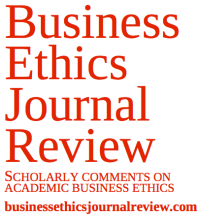 Taxi medallion owners in Chicago and Milwaukee sued their respective cities for letting rideshare companies like Uber and Lyft compete with licensed taxis. Among the most novel of the medallion owners’ arguments was that permitting such competition amounts to a government taking of their property (i.e., the taxi medallions) without the just compensation required by the Fifth Amendment to the United States Constitution. In effect, the taxi medallion owners argued that they were entitled either to the maintenance of a cartelized market or to a taxpayer bailout restoring to them the former economic value of their medallions.
Taxi medallion owners in Chicago and Milwaukee sued their respective cities for letting rideshare companies like Uber and Lyft compete with licensed taxis. Among the most novel of the medallion owners’ arguments was that permitting such competition amounts to a government taking of their property (i.e., the taxi medallions) without the just compensation required by the Fifth Amendment to the United States Constitution. In effect, the taxi medallion owners argued that they were entitled either to the maintenance of a cartelized market or to a taxpayer bailout restoring to them the former economic value of their medallions.
In the recently decided Illinois Transportation Trade Association v. City of Chicago and the related Joe Sanfelippo Cabs, Inc. v. City of Milwaukee, a unanimous panel of the U.S. Seventh Circuit Court of Appeals rejected this reasoning. The opinions, both written by Judge Richard Posner, distinguish sharply between the (legitimate) right to own and enjoy property and the (illegitimate) right to maintain barriers to entry that have historically been a source of profit from the same property. Writes Judge Posner, “‘Property’ does not include a right to be free from competition. A license to operate a coffee shop doesn’t authorize the licensee to enjoin a tea shop from opening. When property consists of a license to operate in a market in a particular way, it does not carry with it a right to be free from competition in that market. . . . All that the City gives taxi‐medallion owners is the right to operate taxicabs in Chicago [citations omitted]. That isn’t a right to exclude competitive providers of transportation.” Differently put, even if the taxi medallion has operated historically as a barrier to market entry by others, it doesn’t entitle its holder to the exclusion of others from the market.
In the linked article, Nick Sibilla observes that the plaintiff-taxi-owners’ arguments recall Frederic Bastiat’s famously satirical 1845 candlemakers’ petition demanding that the candlemaking industry be protected from competition by the sun. Wrote Bastiat, “We ask you to be so good as to pass a law requiring the closing of all windows, dormers, skylights, inside and outside shutters, curtains, casements, bull’s-eyes, deadlights, and blinds — in short, all openings, holes, chinks, and fissures through which the light of the sun is wont to enter houses, to the detriment of the fair industries with which, we are proud to say, we have endowed the country, a country that cannot, without betraying ingratitude, abandon us today to so unequal a combat.” >>>
LINK: Taxi Owners Don’t Get A Bailout Because They Can’t Compete With Uber, Federal Court Rules (by Nick Sibilla for Forbes)
In a pair of wins for drivers in Chicago and Milwaukee, a federal court ruled that taxi owners have no right to block competitors and are not entitled to a bailout. This also marks the first time a federal appellate court has ruled in favor of ride-hailing.
What do you think?




I actually have *some* sympathy for the drivers, here. What they were sold is not just a license, but a *share* in a regulated monopoly. By allowing Uber, the government has unilaterally changed the terms of that agreement.
The court’s opinion suggests that it may have been a _de facto_ regulated monopoly (or perhaps more accurately, oligopoly), but that it wasn’t a _de jure_ regulated monopoly because the cities remained free to issues more medallions or even to abolish the medallion requirement entirely. It would be interesting to know whether the fee for initial acquisition of a medallion (compare acquiring one in the secondary market) was/is reflective of the expected income stream of a regulated monopoly. If so, sympathy may be warranted; if not, then probably not.
If it walks like a duck, it sounds like a duck and looks like a duck it…why is an uber car not a taxi. Taxis are part of a regulated industry. When have we had an industry that is regulated for some but not for others.